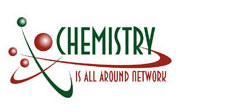
DISSEMINATION REPORT
 Partners:
Partners:Technical University of Gabrovo
 Name of the person involved in the event:
Name of the person involved in the event:Adriana Tafrova, Milena Kirova, Galina Kirova, Krasimira Tomeva, Ilka Boyanova, Maria Nikolova, Milena Koleva
 Date of the event:
Date of the event:25 October 2013 - 27 October 2013
 Type of Dissemination event:
Type of Dissemination event:Conference or Fair
 Description of Dissemination Event:
Description of Dissemination Event:45th National Conference of Chemistry Teachers was held in Gabrovo from 25th to 27th of October, 2013. The conference was organized by Ministry of education and science, Sofia University, Regional Inspectorate of education – Gabrovo, Bulgarian Union of chemists and Technical University of Gabrovo, with the active participation of teachers and experts involved in Chemistry network Project national working group, as a part of the Project activities.
The conference motto “Educational standards and scientific literacy” combined two main conference areas: “The scientific literacy and the chemistry education at secondary school” and “Of the day issues and European prospects of Chemical education at secondary and higher schools”. About 120 chemistry teachers from Bulgarian secondary schools, university professors and experts in the Ministry of education and science discussed on the current situation in Bulgarian science education, State educational requirements and programmes, the educational content teacher’s competences to present it in attractive way. Good practice related to application of interactive teaching resources in chemistry classes, e-learning, teamwork, virtual chemistry experimentation, after-school and informal club activities, was presented by chemistry teachers.
Fast analytical techniques for water purification have been demonstrated by Merck experts.
 Target group:
Target group:Chemistry teachers, university professors and researchers, experts in science education, policymakers.
 Number of people reached by event:
Number of people reached by event:120
 Held in:
Held in:Gabrovo, Bulgaria
 Outcomes and Results:
Outcomes and Results:The conference offered a perfect opportunity to discuss the present situation in science (chemistry) education, to clarify the weak points, to turn the policymakers’ attention toward the unsettled problems and to mark common approaches to enhance the organization and efficiency of the educational process at school.
It also allowed sharing of good practice in chemistry education based on ICTs.
It also allowed sharing of good practice in chemistry education based on ICTs.
 Supporting Documents:
Supporting Documents:1. DSC_0266.JPG
2. DSC_0267.JPG